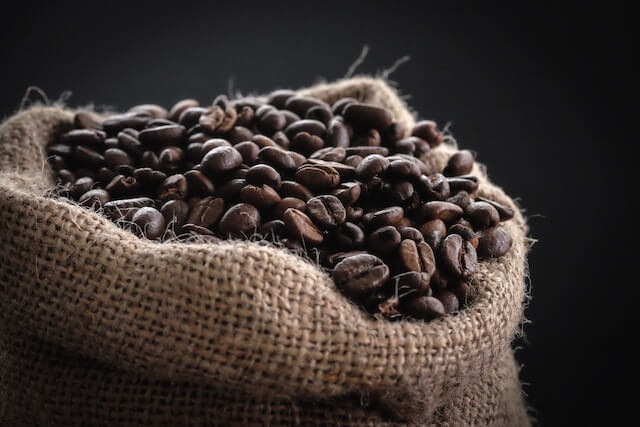A Deeper Look at Kenyan Coffee
Renowned for their bright, complex flavours of berry and fruit, and their pleasing sweetness and intense acidity, Kenyan coffee beans are among the most popular single origin beans in the world, offering a rich and diverse range of delicious flavours and aromas.
The coffee industry is so integral to Kenya that many coffee farmers and production workers are known to be highly knowledgeable regarding coffees and production methods, a knowledge that is put to great use in bringing coffee-lovers a beautiful selection of excellent, high-quality beans.

A Brief History of Kenyan Coffee
While Ethiopia is considered to be the birthplace of coffee, neighbouring Kenya did not begin to produce coffee until much later, with the earliest documented import of coffee dating back to 1893, when French missionaries introduced coffee trees, likely of the Bourbon variety, from Réunion.
After the introduction of coffee to Kenya, it was first produced on large estates that were under British colonial rule, with output from theses estates therefore being exported and sold in London. It was with the passing of the Coffee Act in 1933, establishing the Coffee Board of Kenya, that the sale of coffee beans and the national system of auctions was brought back to Kenya. The auction system, established in 1934 and still in use today, was followed quickly by a set of protocols put in place for the grading of coffee, implemented with the aim of improving the overall quality of coffee in the country.
In the early 1950s, an agricultural act was passed that created family holdings, which combined the production of cash crops with subsistence farming for additional income. Known as the Swynnerton Plan, after an official in the Department of Agriculture, this act marked beginnings of the transfer of coffee production from the British to the Kenyans. The effect of the Swynnerton Plan on the production of smallholdings was so significant that the total income rose from £5.2 million in 1955 to £14 million in 1964, with coffee production accounting for 55 per cent of this increase.
Since gaining independence in 1963, Kenya has come to consistently produce a variety of extremely high-quality coffees. Research and development is seen as being of a very high standard, with many farmers being highly educated in coffee production.

Coffee Grading in Kenya
A particular grading system is used in Kenya for all of its exported coffees. Similar to system used other countries, the Kenyan grading system uses a combination of bean size and quality, with quality often linked to the size of the beans.
E – Elephant beans, which are the largest bean size in the grading system.
AA – The more common grade for larger screen sizes, which usually sell for the highest prices.
AB – A combination of A (screen size 6.80mm) and B (screen size 6.20mm), which accounts for around thirty per cent of Kenya’s annual production.
PB – The Peaberry grade, where a single bean, instead of the usual two, has grown inside the coffee cherry.
C – The size below the AB grading, which is quite unusual to see in any high-quality coffee.
TT – An even smaller size, usually comprising the smaller beans that are removed from AA, AB and E grades.
MH/ML – Mbuni Heavy and Mbuni Light, which refer to naturally processed coffees. These beans are considered of low quality, are often underripe or overripe, and usually sell for a very low price.

Kenyan Coffees at Coffee-Direct
Kenya Blue Mountain Coffee – From £14.99
Our Kenya Blue Mountain is grown from seeds originally from Jamaica, which produce a coffee that has the natural sweetness of Blue Mountain Jamaica, but has also taken on the rich aromatic flavours and intensity that is typical of Kenyan coffee. Full bodied, with a good acidity, hints of nut and citrus and a lovely caramel aftertaste, Kenya Blue Mountain is perfect in strong filter coffees or brews straight from the cafetiere.
Kenya AA Coffee – From £13.99
This mild Kenyan coffee gets its AA+ rating based on the large sizes of the specially selected beans used. Grown in the fertile Nyeri region of Kenya, this offers a strong, slightly tangy flavour that's great for filter coffees and for preparing in a cafetiere, and embodies all the characteristics of a truly great Kenyan coffee, including a full body and delicious flavours of cocoa.
Kenya Peaberry Coffee - £13.99
This is smooth with an intense flavour and fine acidity, coupled with a well-rounded aroma and fruity notes. It is produced from coffee beans grown in the Nyeri region and is suitable for a cafetière or filter machine.
Kenya Reserve Coffee - £12.99
Our medium strength Kenya Reserve blend includes a portion of Kenya Peaberry. This slightly fruity bean adds a hint of extra acidity to the roasted, nutty base of the Central American blend, resulting in great complexity and character.

